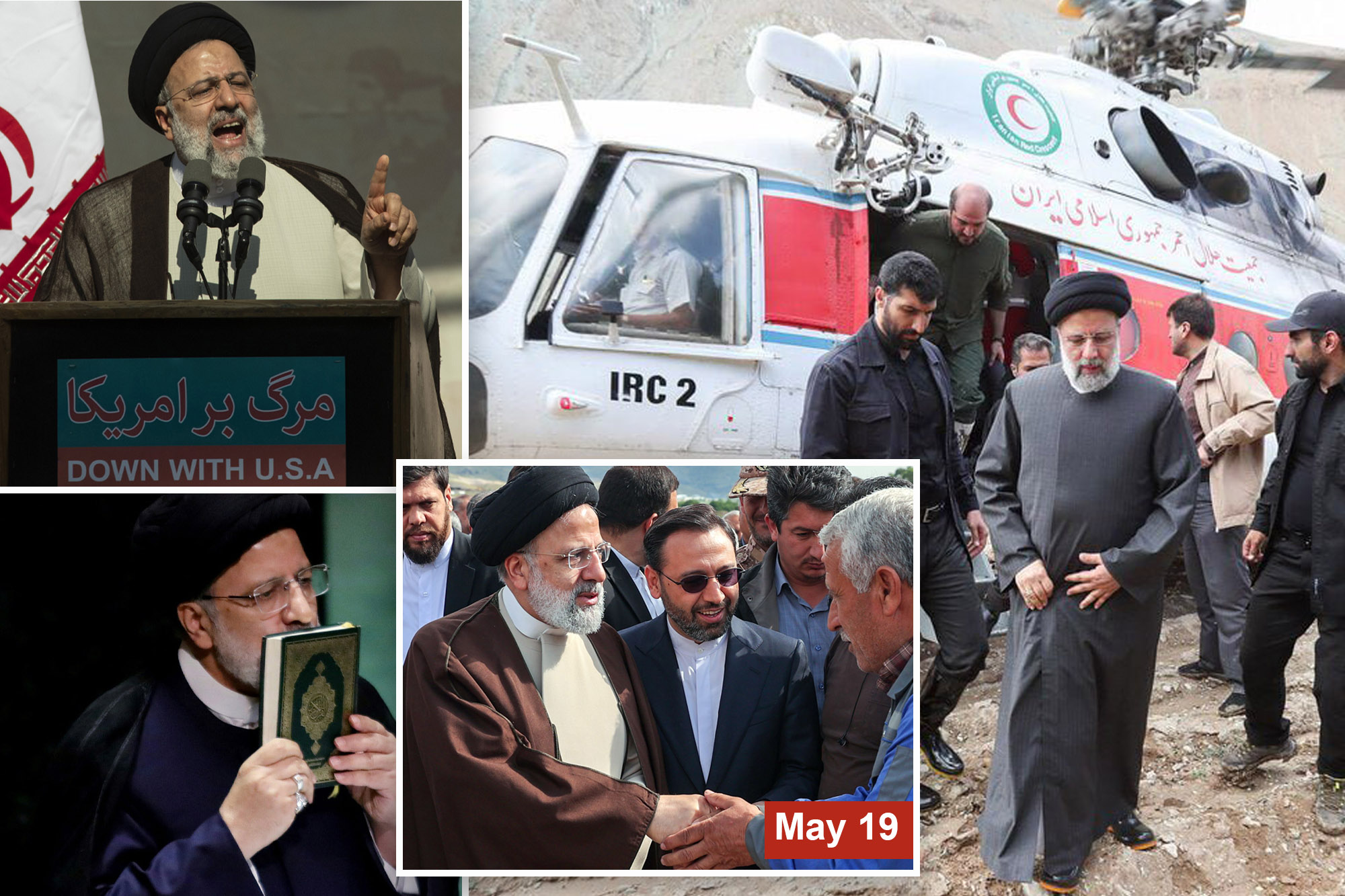
Search crews reported “no signs of life” as they found the mangled helicopter that was carrying Iran’s hardliner President Ebrahim Raisi, the “Butcher of Tehran,” before it crashed in a remote region of the country on Sunday.
“President Raisi’s helicopter was completely burned in the crash … unfortunately, all passengers are feared dead,” an official told Reuters.
Raisi’s helicopter went down in a remote mountainous area is hazardous weather, and it took many hours of rescuers to locate the crash site.
With Raisi’s death, all eyes have turned to what his death might mean for Iran’s government.
Under Iranian law, the country’s First Vice President Mohammad Mokhber will now step into the role as president for a custodial period of 50 days, at which point an election must be held to choose Raisi’s successor.
But the real succession drama will center around who steps up to be the Islamic republic’s next Supreme Leader, a role currently held by 85-year-old Imam Sayyid Ali Khamenei.
Most pundits believed the likely competition to succeed Ali Khamenei comes down to a two-man race between Khamenei’s son Mojtaba and Raisi, Gabriel Noronha, a former US State Department advisor on Iran noted on X.
He pointed out that should no one step up to challenge the current Supreme Leader’s son, he would be all but assured to get the position, effectively making Iran a “hereditary monarchy – just in radical Islamic clothing.”
Raisi, 63, was returning home with Foreign Minister Hossein Amirabdollahian and local state officials through heavy clouds and dense fog after traveling to Azerbaijan to open a new dam with President Ilham Aliyev, the third the two nations have built on the Aras River.
Hours before announcing his death, state media reported the aircraft had experienced a “hard landing” and that rescue efforts were stymied due to severe wind and fog and the region’s rugged, unforgiving terrain.
“The esteemed president and company were on their way back aboard some helicopters and one of the helicopters was forced to make a hard landing due to the bad weather and fog,” Iranian Interior Minister Ahmad Vahidi said on state TV at the time.
Iran’s official news agency INRA said Raisi was traveling in a convoy of choppers when theirs went down near the city of Jolfa, about 375 miles northwest of Tehran. One local government official used the word “crash” to describe the incident, but he acknowledged to an Iranian newspaper that he had yet to reach the site himself.
Both of the other helicopters in the convoy arrived safely at their destination.
Iranian state TV suspended regular programming after news of the crash, instead broadcasting mass gatherings around the country showing supporters solemnly praying for Raisi.
Days after Iran’s failed missile and drone strike against Israel last month, Raisi rattled his saber at an annual military parade, threatening a “massive and harsh” response should Israel retaliate, and warning that if the country had wanted to carry out a bigger attack, “nothing would remain of the Zionist regime.”
Raisi was considered a protégé of Iran’s Supreme Leader Ayatollah Ali Khamenei, with many analysts believing he could replace the 85-year-old leader after his death or resignation, which would have made him only the third man to ever hold the title.
Raisi won Iran’s 2021 presidential election, a vote that saw the lowest turnout in the Islamic Republic’s history. He was sanctioned by the U.S. in part over his involvement in the mass execution of thousands of political prisoners in 1988 known as the “death committee” at the end of the bloody Iran-Iraq war.
In 2022, to quell mass street protests following the death of Mahsa Amini, who died in police custody after being arrested by morality police for allegedly not wearing a hijab, Raisi unleashed a thuggish security crackdown on young people across the country that killed more than 500 people and saw more than 22,000 detained.














